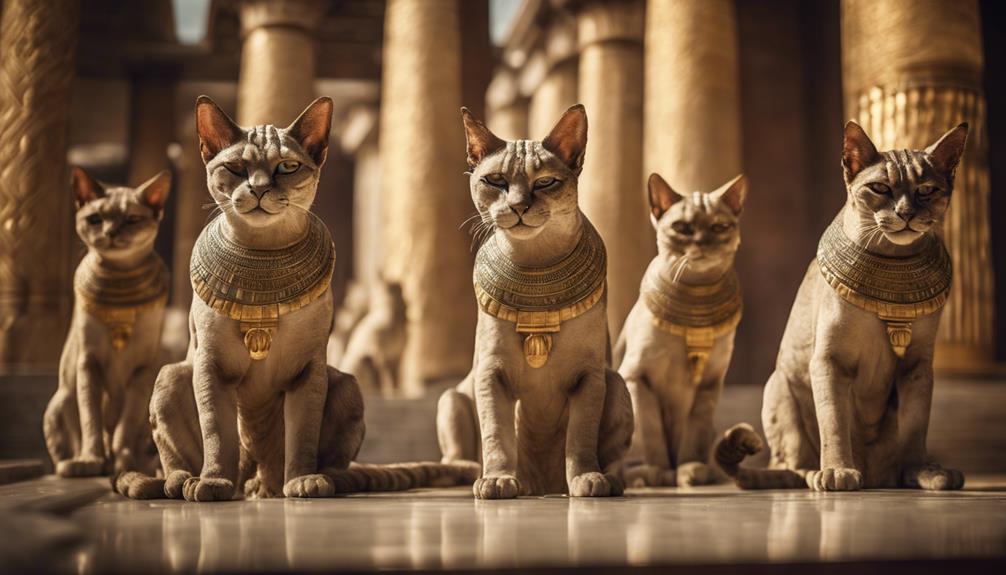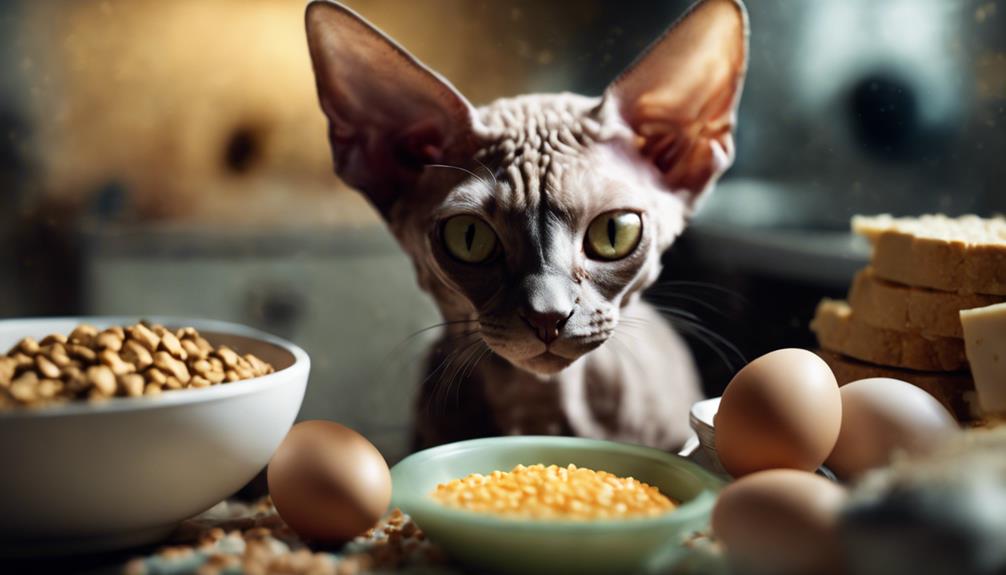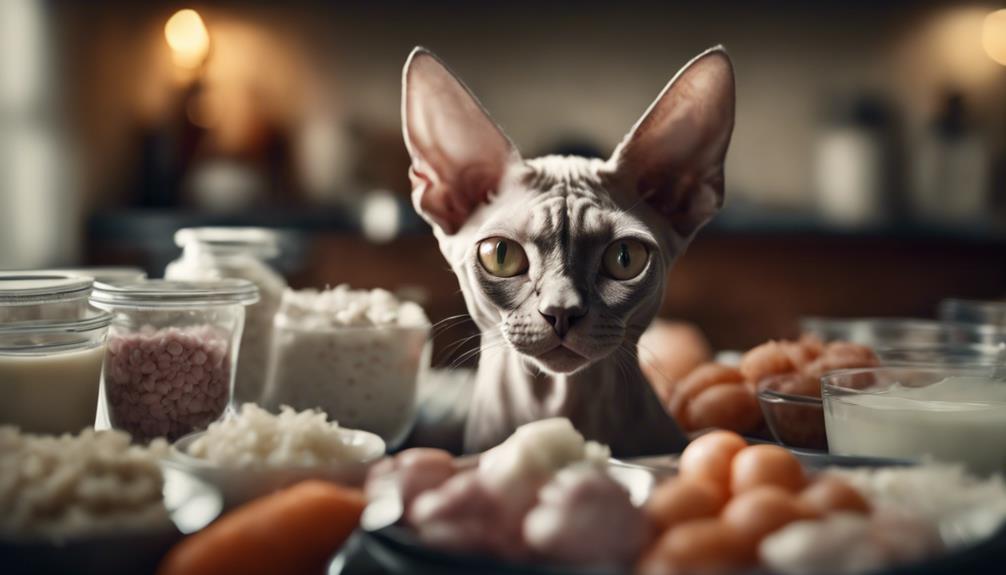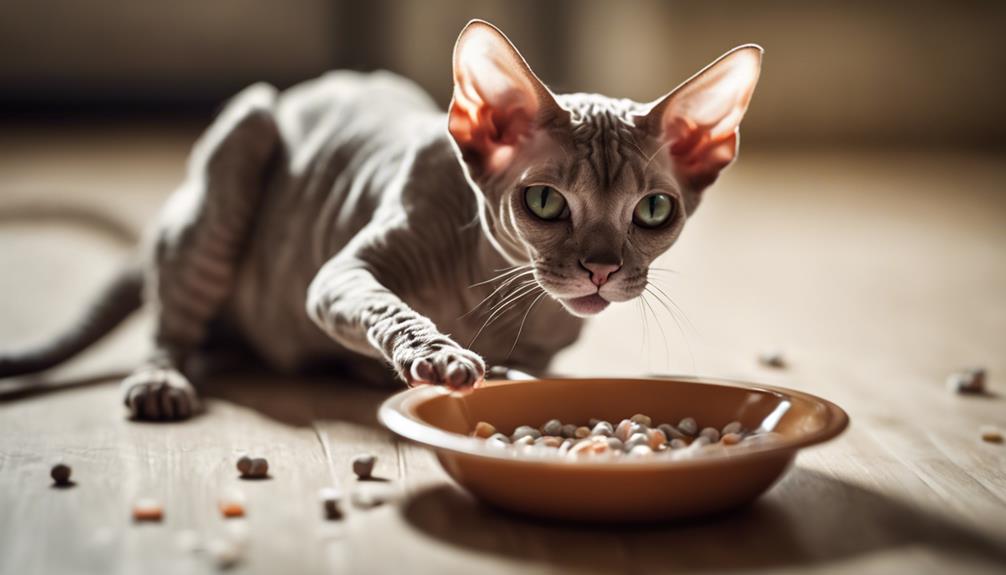When considering the origins of the Devon Rex breed, one could liken it to stumbling upon a hidden treasure waiting to be unearthed.
The discovery of Kirlee, a curly-coated feline with a genetic anomaly, set in motion a series of events that would shape the development of this unique breed.
As I delve into the factors that influenced the evolution of the Devon Rex, an intriguing narrative unfolds, shedding light on the intricate interplay of genetics, breeding programs, and the dedication of individuals passionate about preserving this distinct lineage.
Key Takeaways
- The Devon Rex breed developed due to a unique genetic mutation in Kirlee from Devon in 1960.
- Controlled breeding with Cornish Rex cats furthered the breed’s distinct traits.
- Genetic testing and specific breeding practices refined and solidified the breed over time.
- Breed standards, set by organizations like FIFe, were crucial in defining and preserving the Devon Rex breed.
Origins of the Devon Rex Breed
In 1960, the Devon Rex breed’s origins can be traced back to a curly-coated kitten named Kirlee discovered in Devon, a significant moment that sparked the breed’s development.
Kirlee, with its unique head and curly coat, was bred with Cornish Rex cats, leading to the emergence of a distinct genetic mutation that set the Devon Rex apart from its Cornish relatives.
Through a carefully planned breeding program, subsequent generations solidified the defining characteristics of the Devon Rex breed. This process culminated in the official recognition of the breed by FIFe in 1967, signifying its establishment as a separate and unique breed within the cat fancy world.
Organizations like the CFA and AEDREX played pivotal roles in furthering the development and recognition of the Devon Rex breed standards.
Factors Influencing Devon Rex Development
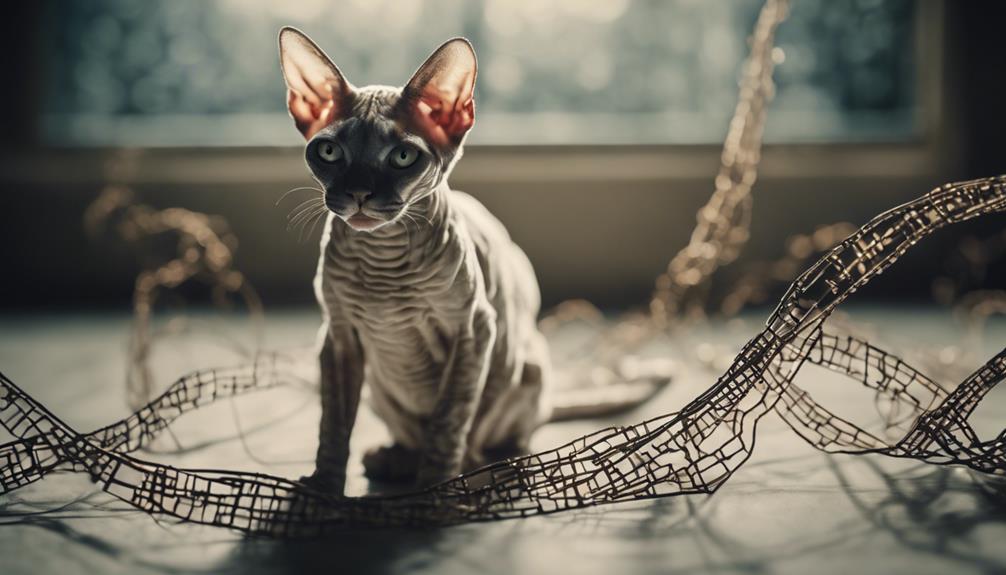
A key factor shaping the development of the Devon Rex breed stems from deliberate genetic selection and controlled breeding practices. The unique mutation discovered in Kirlee, a curly-coated kitten from Devon, England, played a pivotal role in the breed’s evolution. Crossbreeding Kirlee with Cornish Rex cats unveiled a distinct genetic mutation that set the Devon Rex apart.
To maintain the breed’s unique characteristics, genetic testing and specific breeding practices were implemented. This meticulous approach ensured the preservation and propagation of the Devon Rex’s defining traits.
Additionally, the recognition and acceptance of the Devon Rex by various cat associations worldwide further solidified its status as a distinct breed with its own set of characteristics.
Evolution of the Devon Rex Breed
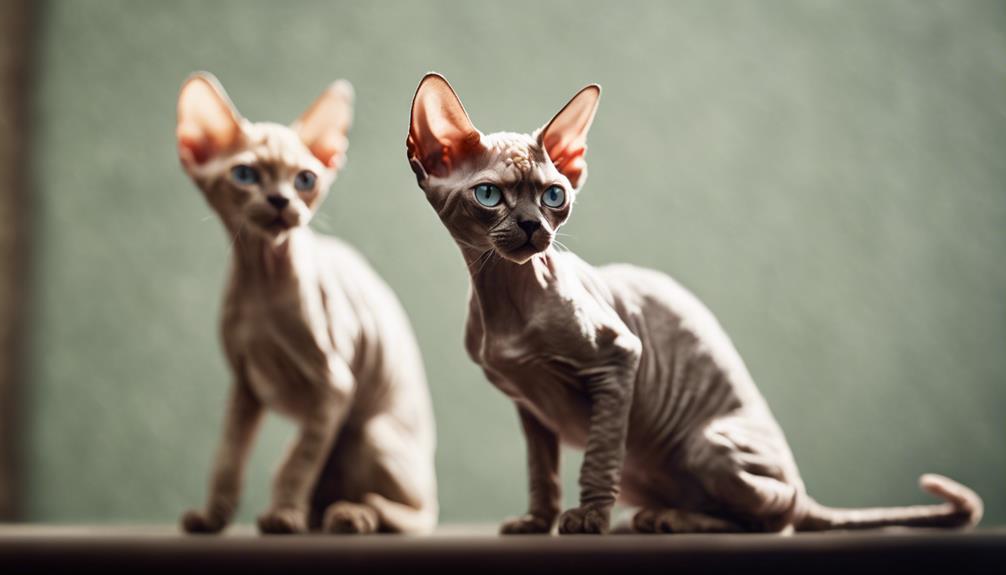
Examining the evolutionary journey of the Devon Rex breed reveals a fascinating interplay of genetic mutations and deliberate breeding strategies that have shaped its distinctive characteristics.
The breed originated from Kirlee, a curly-coated kitten found in Devon in 1960. Through strategic breeding with Cornish Rexes, a unique mutation was identified, leading to the establishment of a formal breeding program to further develop the Devon Rex breed.
Over several generations of selective breeding, the breed’s specific type was refined and solidified. In 1967, the Devon Rex breed received official recognition from FIFe, marking a significant milestone in its evolution.
This meticulous process highlights the dedication and expertise required to preserve and enhance the unique traits of the Devon Rex.
Frequently Asked Questions
What Breeds Make a Devon Rex?
Breeds that make a Devon Rex include Cornish Rex in its breeding history. The Devon Rex features unique characteristics like its wavy coat texture. Known for their playful and affectionate temperament, they meet association standards and require minimal grooming care.
What Are the Genetic Issues With Devon Rex?
Genetic issues in Devon Rex cats, like myopathy and atopic dermatitis, present health concerns. Regular genetic testing, breeding practices, and carrier screening are crucial. Understanding inherited diseases, DNA mutations, and predisposition factors allows for appropriate treatment options and genetic counseling, enhancing veterinary care.
Why Do Devon Rexes Have Short Whiskers?
I have short whiskers due to genetic mutations, a defining trait of the Devon Rex breed. These whiskers contribute to our unique appearance and serve a sensory function. Breed standards emphasize this feature, evolved for an advantageous purpose.
What Is Interesting About Devon Rex Cats?
Devon Rex cats are unique with their playful antics, mischievous behavior, and affectionate nature. Their energetic personality, intelligence, and social companion qualities make them loyal pets. The curly coat and distinctive appearance add to their charm.

